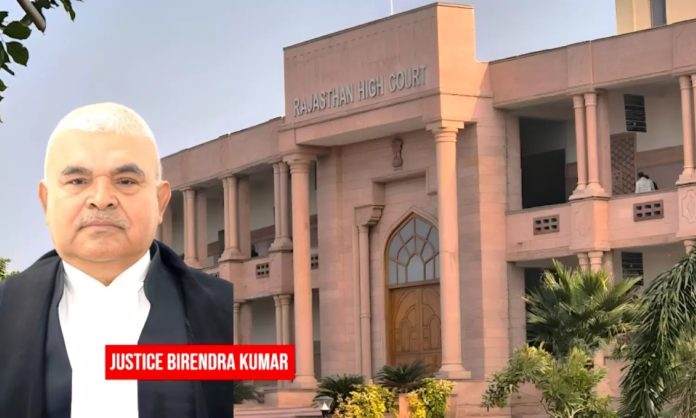Rajasthan High Court Rules Masjid Falls Under ‘Waqf’ Definition, Disputes Must Be Adjudicated by Waqf Tribunal.
The Rajasthan High Court has ruled that a mosque, being a religious place used for prayers such as Namaz, falls under the definition of ‘Waqf’ as per Section 3(r) of the Waqf Act, 1995. Consequently, any disputes concerning it must be adjudicated exclusively by the Waqf Tribunal, reported the Live law.
A bench of Justice Birendra Kumar referred to Section 85 of the Waqf Act, which bars civil courts, revenue courts, and other authorities from hearing cases related to waqf properties, emphasizing that only the Waqf Tribunal has jurisdiction over such matters.
The ruling came in response to a civil revision petition challenging a Civil Judge Phalodi’s order, which had rejected a plea under Order VII Rule 11 CPC to dismiss a suit concerning the Madina Zama Masjid. The dispute revolved around whether the mosque was a waqf property and whether the civil court had jurisdiction over the matter.
The High Court determined that the permanent dedication of the property for religious purposes, as per Muslim law, classifies it as waqf, thereby barring civil courts from adjudicating related disputes. The court allowed the civil revision plea, instructing that the plaint be rejected under Order VII Rule 11(d) CPC, while permitting the original plaintiffs to approach the Waqf Tribunal within four weeks.
Traditionally, waqf refers to properties dedicated to religious or charitable purposes in Islamic law, rendering them irrevocable and managed by a ‘mutawalli.’ The Waqf (Amendment) Bill, 2024, currently under parliamentary review, proposes significant changes, including eliminating ‘waqf by user,’ which could impact undocumented properties historically classified as waqf.




